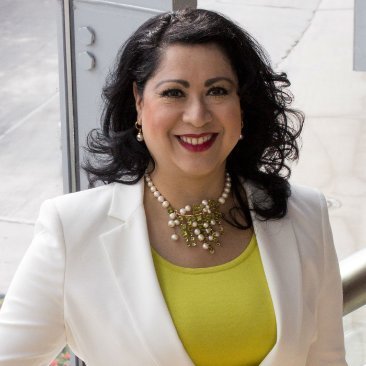With Rockets, Opportunity for Ownership Representative of Houston
Style Magazine Newswire | 8/11/2017, 6:21 a.m.
By: Dr. Laura G. Murillo, Houston Hispanic Chamber of Commerce President & CEO
It feels like yesterday that businessman Leslie Alexander bought an “upstart” Rockets team for $85 million before the team’s historic 1993-1994 season.
Back then there was palpable excitement around the franchise.The Rockets had experienced success, but were never able to take the final step to winning a championship. They had put stars on the court, of course, but couldn’t assemble a team that had the “it” factor so many great teams do. The Rockets – like its hometown – were on the cusp of something great, but needed to take that final step.
For the Rockets of the early 90s, the final step was a change of ownership that would mirror the values of a franchise – and a city – on the rise. The final step was Leslie Alexander.
Now, 24 years, two championships, and countless thrilling moments later, the Houston Rockets face a situation not dissimilar from the one they faced two and a half decades ago. This is a franchise on the cusp of something big. It’s a franchise that finds itself at home in an international city on the rise. The Rockets have put together a team full of stars that could move the franchise into the upper echelons of the NBA’s elite.
Now all that’s left is that final step.
The NBA of today differs greatly from the league of the 90s. Today’s NBA boasts one of the youngest, most diverse fan bases in the world, and is second only to Major League Soccer in attracting young viewers in the 2-17 age demographic. While theNLF’s audience has gotten older, the NBA’s audience has gotten younger. Today, close to half of the NBA fan base is under the age of 35 – talk about a league with lasting economic power.
The NBA fan base is also one of the most diverse of all professional sports. In fact, professional basketball is the only professional sport in the United States where people of Caucasian ancestry are outnumbered in total viewership. Over the past decade, the NBA’s Caucasian viewership saw a 13.7% growth in average minutes of NBA basketball watched. Hispanics, Asian-Americans, and African-Americans saw a growth of 14.4%, 57.1%, and 62.9% in the same category, respectively.
Our city is also getting younger and more diverse. The city’s population is well above the national average for persons under the age of 18, and is far below the national average for persons over the age of 65.
When the Rockets won their two titles in the early 90s,Caucasians made up 41% of the population. African-Americans, Hispanics, and Asians made up 55%. 24 years later, Caucasians make up just 26% of the population. African-Americans, Hispanics, and Asians? They make up 74%.
These demographic trends demonstrate that the city and the franchise stand to benefit greatly from a league with annual revenues exceeding $4.5 billion because, candidly, our city and its fan base are the future of basketball.
With recent media attention surrounding Beyoncé’s interest in owning the franchise, the time is now for interested parties to put forward their cases for ownership. It’s critical that any potential ownership group prioritizes minority participation as part of those proposals. That will not only send a signal to the league that Houston is committed to its future – it would communicate the values of our multicultural city to the rest of the world.
Encouraging minority participation shouldn’t be a challenge. There’s no shortage of minority ownership across professional sports in the United States. There’s also plenty of capital amongst the city’s diverse communities to put together a compelling package – it’s unlikely that even Beyoncé will be able to foot the $2.6 billion tab alone.
You don’t need to look outside of our city for an example of this kind of agreement. Longtime Texans owner Bob McNair has made it a priority to encourage ownership that reflects the shifting demographics of our city. Together, these minority owners have pooled together their resources to round out a representative ownership base. While these owners only represent a small percentage of the team’s ownership, their involvement symbolizes much more than dollars and cents. They symbolize an ownership group indicative of Houston’s future.
Now it’s time for Rockets ownership representative of that future.




